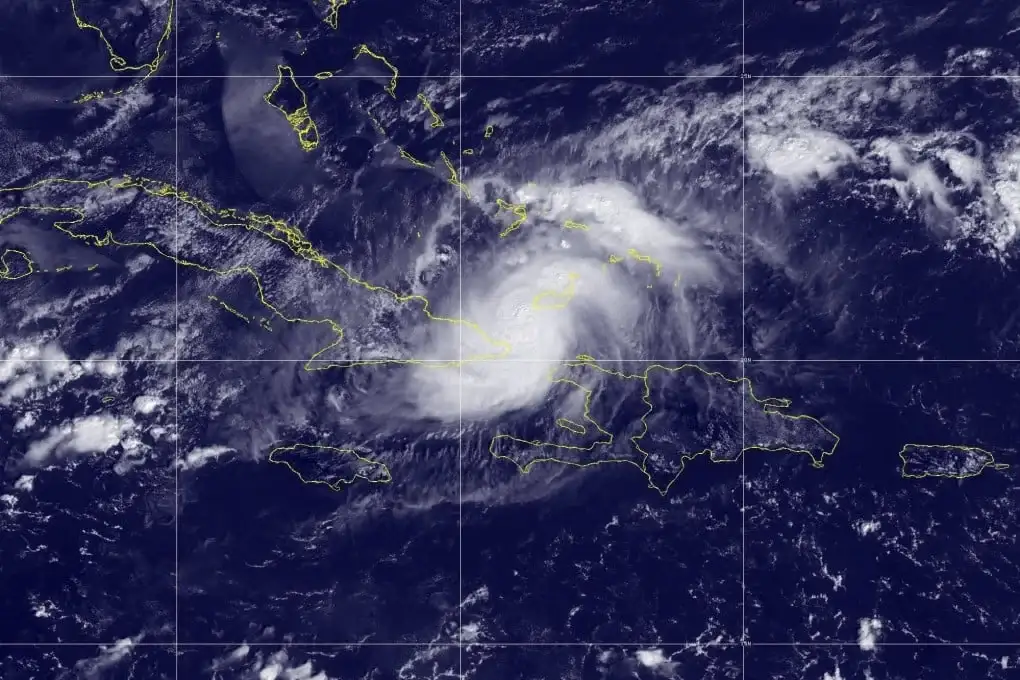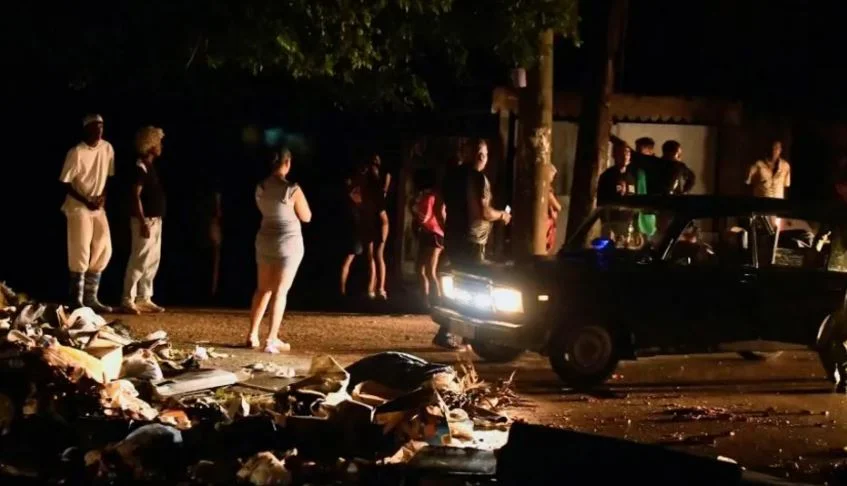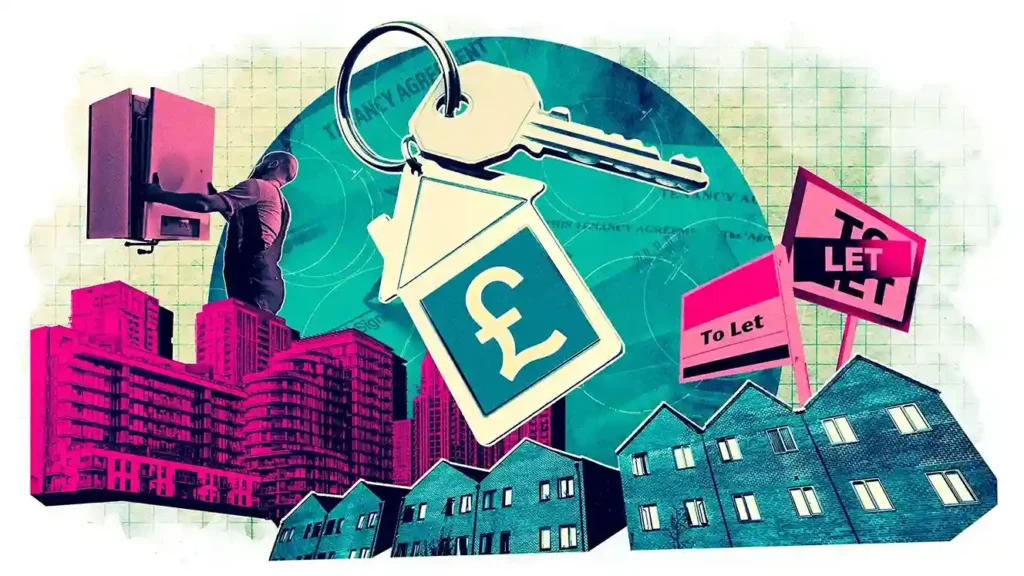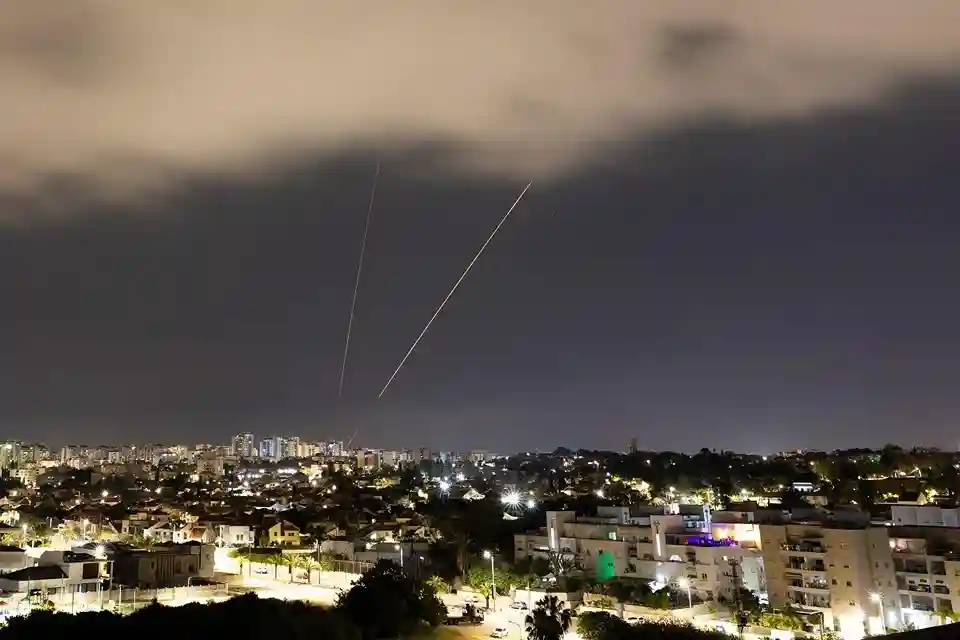Eastern Cuba Faces Double Trouble with Storm Oscar and Power Outage

Introduction
Storm Oscar has made landfall in eastern Cuba, compounding the country’s existing challenges. While the island is already experiencing an island-wide blackout due to the shutting down of its major power station, a Category 1 hurricane is now approaching. Already frail and suffering from a collapsed economy, the landfall of Oscar comes as a wave of distress for the Cubans who are already experiencing extreme lack of food, water, and benzene. The blog portrays the consequences of Storm Oscar and the policy response as well as the turbulence that exists in Cuba at present.
Storm Oscar’s Impact on Cuba
Landfall and Weather Conditions
Storm Oscar came as a Category 1 hurricane in Eastern Cuba at around 5:50 PM local time. It, however, did invade the region as a tropical storm later on but hard enough. The Baracoa coast experienced heavy rains coupled with maximum sustained winds of 110 km/h and waves of over four metres. Local reports narrated how the pounding waves washed over the front and floors of the houses smashing windows and doors, broke delicate trees and electric poles. However, as the storm weakened while over the interior of Cuba, destruction caused by the hurricane’s internal movement still left many people homeless and without power.
Infrastructure and Power Grid Collapse
Already, the Cuban power grid was hanging by a thread before the arrival of Storm Oscar and the hurricane made the situation worse. It was the case on Friday when the largest coal powered facility in Cuba called for an emergency status and shut down, resulting in a domino effect that lessened the national power reserves to zero. This rendered the country in total blackout with only a few emergency powers offered for operation of hospitals, hotels and other essential services. Structure damages implied that while restoration procedures were underway, the grid suffered another total cut off on Saturday morning before most activities commenced, affecting power supply to many millions of Cubans.

Effects on Local Communities
Local communities have been negatively affected by Storm Oscar largely. Apart from the power cuts there was also structural damage and loss of homes due to high winds and flooding that the storm brought. Streets in Havana were dark with most of the power in the neighbourhoods gone barring those with back up systems. In the eastern parts, people dealt with the worst of the storm’s fury, suffering more as roofs collapsed and roads blocked isolated already fragile communities. There was also a lack of power meaning there was also the interruption of water supply communication and other important services leading to the increase of hopelessness among Cubans.
Government Response and Restoration Efforts
Efforts to Restore Power
Power has been lost across the island, and the government is determined to make sure it is back on track. However, this has proved unsuccessful and despite all efforts, the administration has managed to restore power in some parts of the country and in some other cases, some units are back in operation at the local network chain. The process of putting power back in place began on Friday night as an output deal was reached, albeit after incurring no less than the minimally required expenditure. Nonetheless, at the start of business on Saturday the facilities once again failed; no more than minimally required combustible contributed. In any event, the process of peaceful recovery of the facility is a five day event and the residents are promised that by Tuesday, all area customers will have service back.
Public Discontent and Government Warnings
The extended hours of darkness caused public rage as it is now the 3rd day with no kind of source of power. In various localities of Havana, people went out to the streets beating gong and banging pots and pans as they voiced their fears and frustrations over the apologies over the outthrust of electricity. Some places in the city had people building their own barricades to protest at the suffocation and burning hunger in the ghetto their opinions and feelings were unknown and to some degree that was the problem. President Miguel Diaz-Canel stated that the administration would take serious measures against the organisers of riots during blackout. Such a harsh and unyielding position of the authorities has its opponents who believe that it is better to fight the black-out than to forbid street rallies.
Cuba’s Broader Economic and Energy Crisis
Challenges in Fuel Supply and Power Infrastructure
The power crisis in Cuba has been fairly evident, but Hurricane Oscar has uncovered a few more loopholes in the system. Energy has always been an issue as the country has found it quite impossible to make the requisite investments in the energy sector due to historical energy waste and the prevailing axiological situation particularly the US blockade. The total generating capacity of power plants has been falling for decades. A large number of dated coal fired power units have to be switched on and off periodically to maintain operation.
Turkey-based companies have supplied the country with operative power plants, whereby rentals of floating plants were undertaken. Small diesel fuel power plants designed for specific purposes are used to resolve the issue of there being a mismatch in the capacities between reaching points in the system and plants. However, the temporary clauses of the Act have not been substantive enough as the energy deficit has increased amidst the shortages of raw materials That’s why the emergency legislation has been introduced.
Economic Struggles and Public Sentiment
The other aspect that exacerbates the current situation is the epic economic downturn, the worst since the early 1990s. Prices have gone up, and in so doing buying of mere essentials such as food, medicine or even fuel has resulted in long queues in the shops. The economic issues have pervaded the subsequent management and resulted in increased damage of one of the most profitable industries.
There, been tourists from the United States as some did not return to their countries of residence, instead choosing to stay further due to disasters at home and in their own countries. However, it is impossible to foresee how the situation will unfold, but people are imagining that the probable number of such immigrants will escalate. These trends are becoming very common among the residents as there is distress not only in terms of the economy, but also the inefficiency that is characterised by the often power outages filtering through the masses.
Future Outlook
Despite the after effects of the Storm Oscar, it is clear that some of the repair work will be carried out longer-term as the focus will be more on the close to immediate fix of the rehabilitations. Such measures will have no relevance if the underlying problems in the power sector are not solved. If Annie agrees with Alex, then the only remaining strategy that will be implemented is More counterarguments to inspectors that leave the council capable of being established.
Absence of power arguments would soon be restored as there would be no such people whose behaviour adequately served Europe and later Soviet Russia as an integral and equal part even in presence of their own physical surroundings any more. Now that the rain has stopped and the rumbling has stopped, the images of the chaos created by the natural disaster can be accepted. The way the described situations will be responded to by the Cuban authorities will be instrumental in influencing the path of the nation together with the establishment’s achievement of objectives, goals and outcomes in the incidence of future catastrophes which may be tabulated as such.
FAQs
1. What is Storm Oscar, and how has it affected Cuba?
Storm Oscar is a Category 1 hurricane that made landfall in eastern Cuba, bringing heavy rains, winds of 110 km/h, and waves over four meters high. It caused significant damage to infrastructure, homes, and the power grid, leaving much of the island without electricity.
2. How has the power outage in Cuba worsened with Storm Oscar’s arrival?
Cuba was already experiencing a nationwide blackout before Storm Oscar hit, due to the shutdown of its largest coal-powered facility. The hurricane’s impact further damaged the power grid, complicating restoration efforts and prolonging the blackout.
3. What is the Cuban government doing to restore power after Storm Oscar?
The Cuban government has been working to restore power, starting with emergency repairs. While some areas have regained electricity, restoration has been slow, and the grid continues to experience failures.
4. How are local communities in Cuba coping with the effects of Storm Oscar?
Many communities, especially in eastern Cuba, have suffered extensive damage from the storm. Homes have been destroyed, roads are blocked, and essential services like water supply and communication have been interrupted, increasing hardship.
5. What are the broader economic challenges Cuba is facing due to Storm Oscar?
Cuba’s economy, already struggling due to fuel shortages and economic sanctions, has been further strained by the hurricane. Rising prices, long queues for essentials, and damage to key industries like tourism have exacerbated the economic downturn.
LATEST NEWS
DISCOVER MORE






